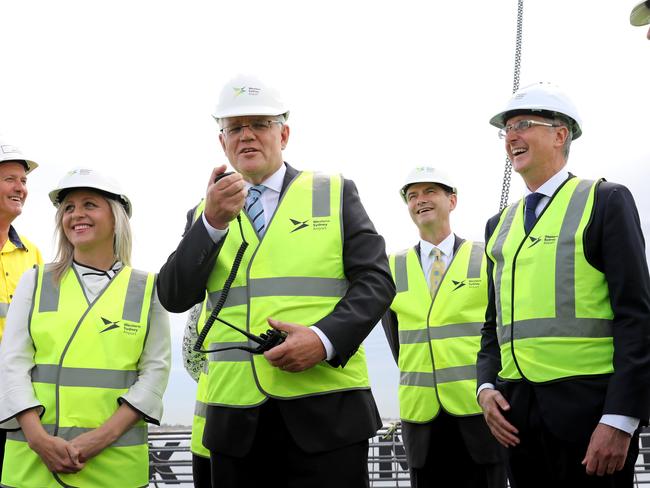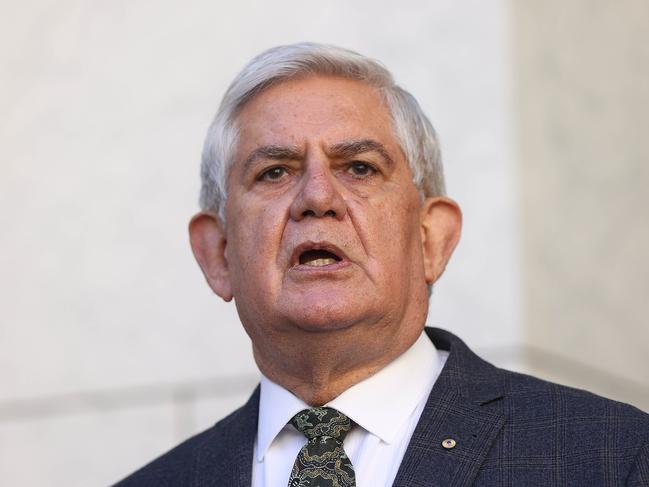Peta Credlin: Two bills that could divide the coalition party room and cost it votes at the election
The Morrison government is testing his political base by introducing two significant proposals before the electorate has had a chance to digest what they are, writes Peta Credlin.
Opinion
Don't miss out on the headlines from Opinion. Followed categories will be added to My News.
It seems like the Morrison government is clearing the decks for the election that must be held by May – including all the unfinished business from the last campaign, and some promises that probably should never have been made in the first place.
Last week, the government briefed backbenchers about its forthcoming religious freedom bill which, by codifying religious freedom, could easily weaken it rather than strengthen it. As much as it’s important that we protect the right of people of faith to express themselves, right now we have the freedom to do anything that’s not expressly prohibited rather than only the freedom that the parliament has allowed us. To go down this path would be a big step and one that needs careful consideration lest we lose more than we gain.
And on Friday, there were reports that the government is about to introduce legislation for an Indigenous “voice” to parliament, which minister Ken Wyatt has been promising all term, but which could deeply divide the Coalition party room and the electorate.

The PM and key ministers (such as the Health Minister and the Treasurer) have been preoccupied by Covid, but not so other ministers. The pandemic is no excuse as to why these significant proposals haven’t been openly discussed with the community, rather than sprung on them just before an election.
Take the Indigenous “voice”. Of course, our Aboriginal heritage should be honoured and respected, and Aboriginal people should fully participate in Australian society. And obviously there’s been past discrimination, injustice and racism against them. But how do we become a colourblind society? How do we become a country, in Martin Luther King’s immortal words, that judges people “by the content of their character not by the colour of their skin” by setting up a special body, with members elected on the basis of race, to give laws meant for all Australians special race-based consideration for just some?
Yes, it’s meant to atone for past racism, but isn’t making racial distinctions wrong? Certainly, that’s what we were asked to think, until Critical Race Theory came along, with its insistence that white people are inherently racist unless they manifest in their lives a kind of permanent, institutionalised apology.

As the First Australians, Aboriginal people could perhaps claim a special status, but this would be much better done through some form of acknowledgment in the constitution – such as Tony Abbott’s suggestion that we include, in the preamble, that Australia is a country with “an Indigenous heritage, a British foundation, and an immigrant character”. Such words would include everyone who has helped build Australia – now and in the past – by defending our flag and freedoms, creating our prosperity, and shaping our institutions as well as those who, in race terms, have been here for thousands of years.
I’m inherently cautious about any institutionalised special treatment for particular groups, especially as Aboriginal people are certainly not the only ones who’ve had a raw deal in the past and continue to face issues: what about women, migrants from non-English-speaking backgrounds, some religions, and people with disabilities?
If every group with a claim for special consideration needs its own special representation to parliament, soon there’ll be a multitude, indeed a babble of “voices” to parliament, and governmental decision-making will be even more gummed up with special pleading, and the overall national interest even more drowned out.
Already, at almost every official event, there’s a “welcome to country”, in a special nod to the 3.3 per cent of Australians who identify as Indigenous, which the 96.7 per cent who don’t normally accept as the courtesy due to the people who were here first.

There are now six (out of 226) members and senators in the federal parliament who identify as Indigenous, with more standing as candidates at the next election. Surely continuing to elect Aboriginal people to parliament (which, after all, is the voice of the whole Australian people) is the best way to ensure that they get the hearing they deserve and is further demonstration that Australian voters are colourblind when it comes to choosing the people best able to represent them?
With its pandemic-driven spending spree, softly softly approach to authoritarian state governments, and commitment to net zero emissions (even though there’s no new policy to deliver it), the Morrison government has already sorely tested the goodwill of its political base.
One Nation, the reconstituted Liberal Democrats and the cashed-up Palmer party are already trawling for first preference votes among the “Howard battlers” who used to be the Coalition’s strongest supporters.
Maybe if the government had better addressed the concerns of conservative voters, via vetoing the incorrigibly politically correct national school curriculum or by supporting nuclear power on land as well as at sea, this wouldn’t matter so much because the splinter party votes would return in preferences.
But legislating a “voice” especially, rather than risking defeat by having a referendum, looks sneaky. Given the pressures on the parliamentary timetable, the only way a “voice” could be legislated before the election is with Labor support.
Asking people to support something they inherently mistrust, and a Labor version of it at that, would be a bitter pill to swallow – and for many could be the last straw.
If there’s an argument for a separate Aboriginal body, then it should be put to the people to decide, not the politicians.
WATCH PETA ON CREDLIN ON SKY NEWS, WEEKNIGHTS AT 6PM





